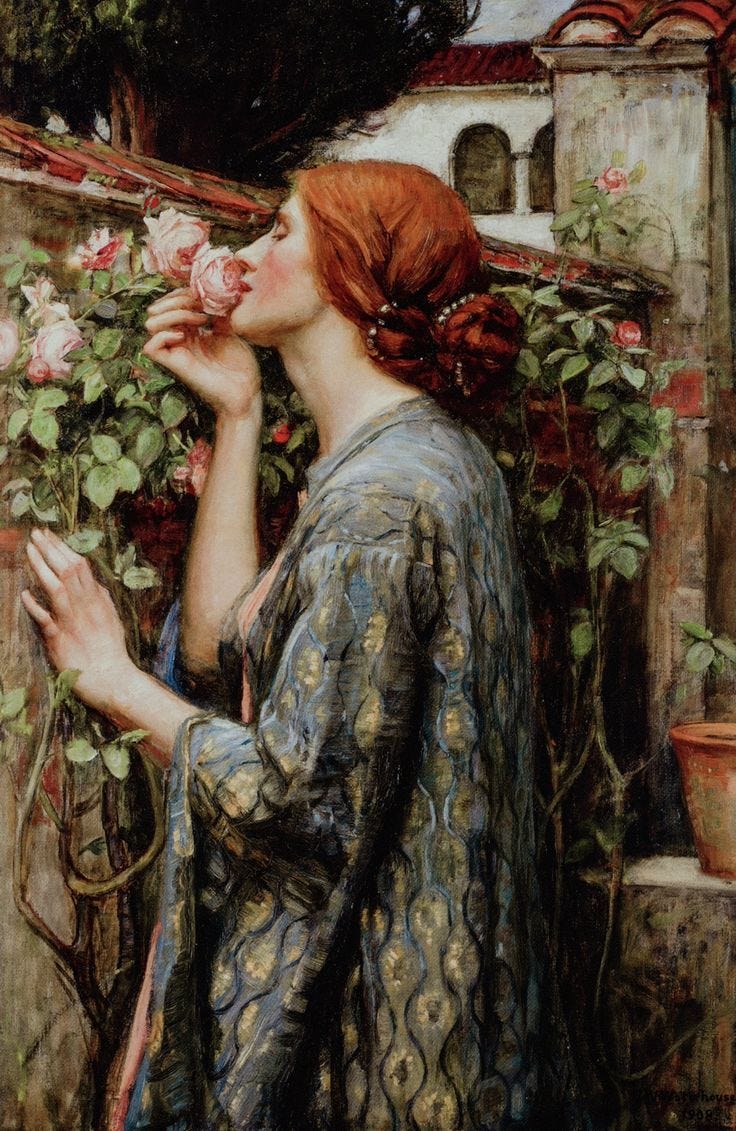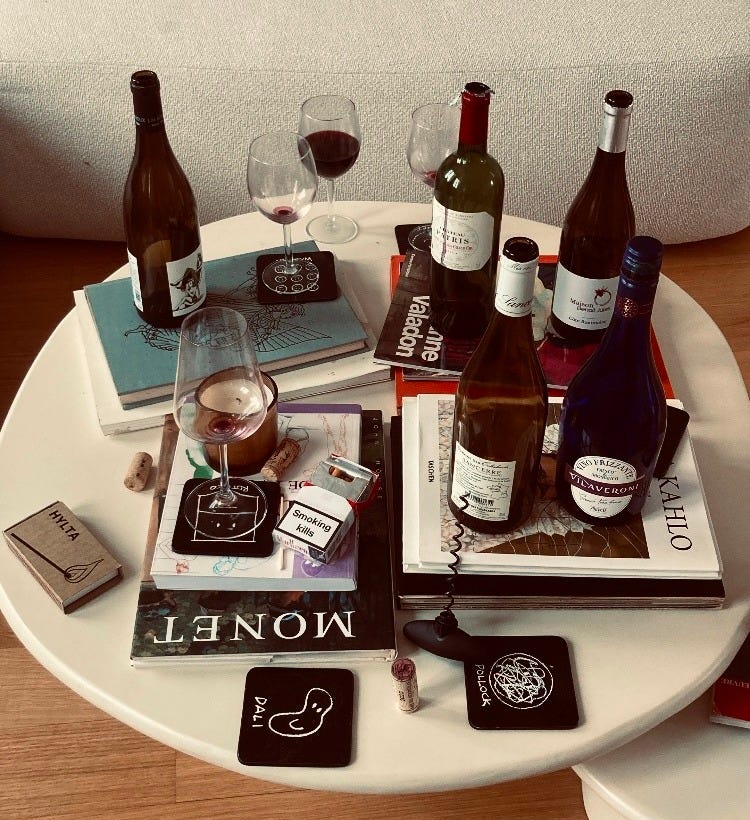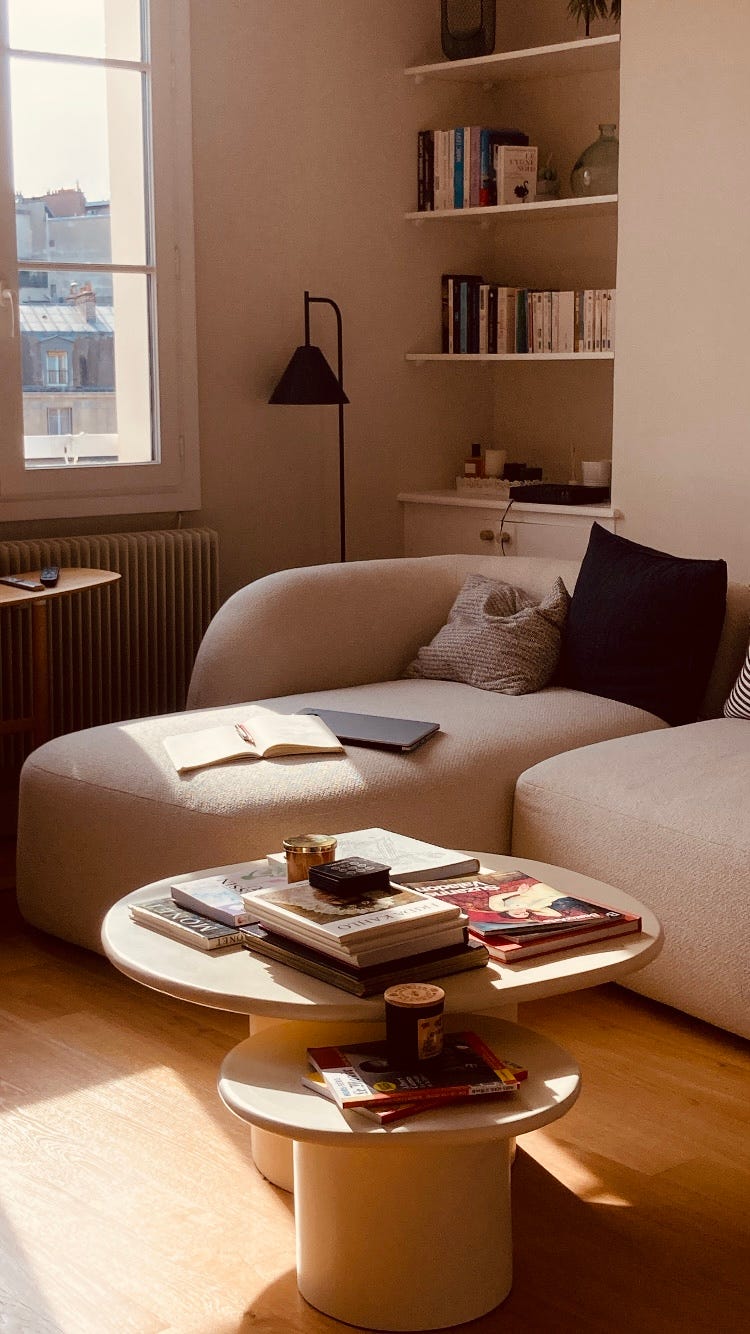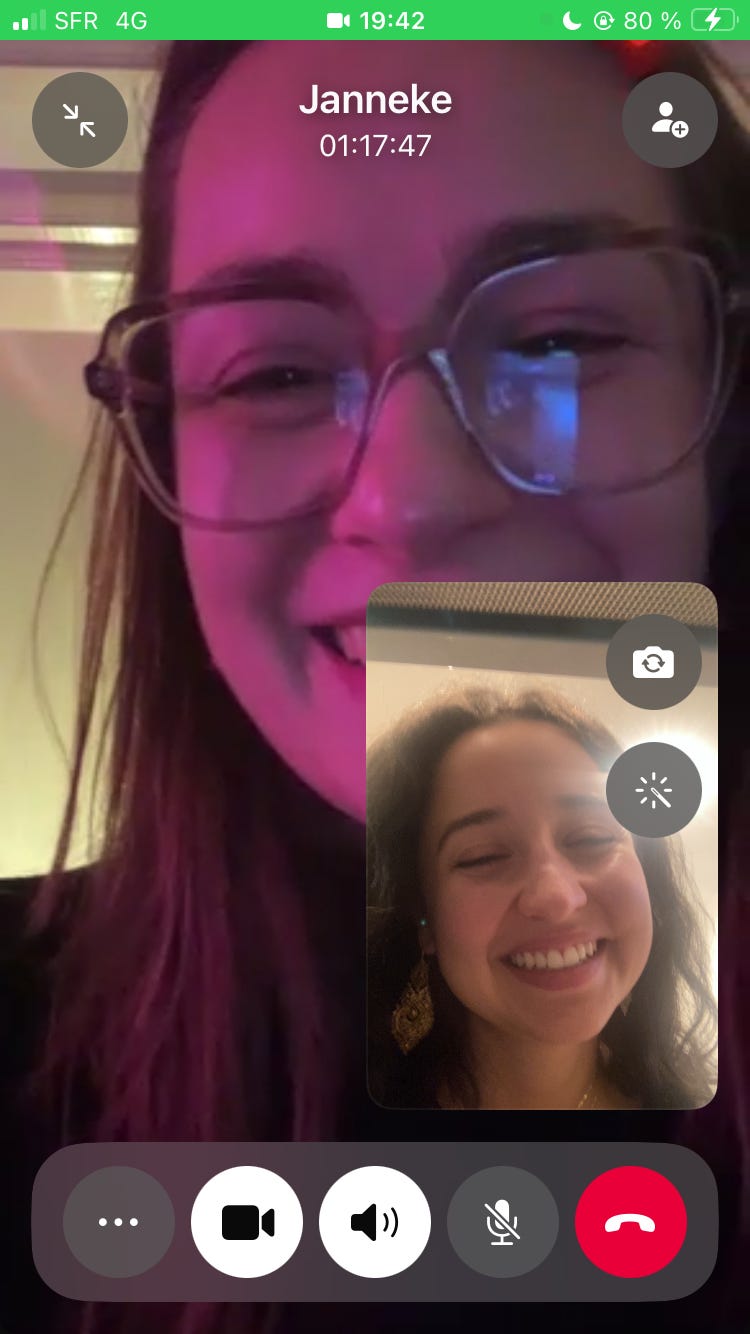The subtle art of noticing
Stop measuring days by degree of productivity, experience them by degree of presence.
This fall, when it felt like my life was falling apart, I decided to just let it.
For all my life, I’ve been planning, grinding, working, studying, and now, as I take a breath, I wonder, am I taking the time to savor it all? Am I enjoying the whole human experience?
We let an incessant stream of questions about the future torment our minds ; What degree should I pursue? Where should I apply for the next internship, the next job? When will I get a promotion? Where will I move to? Who will I marry? Is this the right person? Am I the right person? Have I worked enough? How can I improve? How can I earn more? Have I invested in the right things? Have I invested in the right people? Have I invested in myself? Is it worth it? What is worth it? Is anything worth it, really?
I’ll be happy when I land this position, I’ll be happy when I have X amount in my bank account. I’ll be happy when I move to X. When I buy X. When I marry X. When I travel to X. When, when, When…
We are the only creatures on this planet who lead a life so foreign to our essence and so contrary to our true nature. I don’t see any other breathing creature having an existential crisis about a job or a piece of paper. I haven’t heard of any other being getting in fight or flight mode because it has received an email…
In this letter, dear friend, I will not dwell on complex philosophical questions.
Instead, I will hold your hand and tell you about the mindset shift that genuinely makes me happy every single day of my life, no matter what, and give you simple steps to achieve it.
I. Instead of incessantly measuring my days by degree of productivity, I have decided to experience them by degree of presence.
And that has changed everything. I went from being so anxious and crushed by the weight of a million unanswered questions, to making my peace with uncertainty, and enjoying the ride.
But mostly, it made me aware of how happy I am, at all times, even when sadness visits. Even when fear visits. Even when worry visits.
It feels like I am a house made of happiness, and all other emotions are just visitors coming in and out of the walls of my happiness.
The thing is, I have always been a “high achiever”. Someone ambitious, driven. I’d work on a million things at the same time, always come up with new projects, new ideas, new plans, new goals. No mountain seems big enough. And every time I climbed one, another one emerged from the mist. It was an endless hike upwards.
Some days, I’d go to sleep with a certain feeling of guilt, or worry, either because I hadn’t done enough or because I hadn’t figured out what to do next. I’d feel bad about myself, sometimes even like a failure, because I hadn’t ticked all the things off my to-do list. I have always been a girl of lists : To-do lists, pros and cons lists, short-medium-long term goals lists… in a way, that was very efficient, but it was also oppressive, to measure my existence by degree of productivity.
Instead, I now experience my days by degree of presence. And that feels so liberating.
Of course, as humans, we love having goals and desires to pursue, to seek, to fight for. The pursuit of greatness makes us grow.
But that shouldn’t be the measure of our lives, nor the scale of our happiness.
Instead of asking yourself, before you go to sleep : What have I accomplished today? Ask yourself, what have I experienced today? How present were I today?
And you ask me, but Maggie, what does it mean to be present?
My answer - to be present is to notice.
Notice things.
Take your goddamn earphones off.
Walk around town and poetically observe your surroundings.
Hear the shouting of merchants at the market. Look at the people reading in the bus. Smile at strangers. Notice the heat of the sun on your skin. Notice the subtle kiss of the rain on your hair. Notice the smell of warm bread emerging from the boulangerie. Notice the softness of a cashmere sweater, the sweetness of a cup of hot chocolate. Notice the smell of books (I am crazy about the smell of books!). Notice the laugh of a baby, the juiciness of an apple, the cry of a saxophone around the corner.
Reconnect deeply with your five senses. That is the way to feel alive.
Living is not a passive verb.
II. The subtle art of noticing.
The subtle art of noticing is best achieved through childlike wonder. Why? Because children, instead of being judgmental, are curious about things. Be curious about things. Even things you think you have already seen, or think you already know. If you look at them with different eyes, they will, in fact, appear like new again, maybe even different. Substitute judgment with curiosity. Substitute expectations with genuine surprise and wonder.
Look for the things nobody else notices and poetically observe your surroundings. First, you use your five senses to detect an image, a smell, a taste, a sound, any sensation that you catch. Then, you open your heart to the feeling it evokes within you, and the sense of beauty that surrounds it. I have always felt like snippets of conversations from strangers, in the street or in a café, are always so very poetic. Sometimes I felt like maybe God would send answers to my inner thoughts through them.
Keep a record of the things that make you feel alive. Here’s a bunch of notes I keep on my phone/diary :
Beautiful random things I have noticed
Compliments I’ve been given that have touched me
Things my friends have said that are either extremely wise or ridiculously funny
Moments I felt I was very alive - Whether pure happiness, sadness or pain.
III. My little things <3
Here are some things I’ve noticed and written down in the past 10 days :
The sound of my friend Janneke’s laughter over the phone
The smell of James’ shirts
The morning sunlight flowing into my new appartment
The pretty flowers Douglas offered me
The smell of muffins in the entire flat after I baked with Tatiana
When I am standing in my kitchen, preparing food, and I hear my friends joking and laughing at the dinner table. So I take a bit longer to go back, I take the moment in, and I fully cherish the sound of their compound laughter (in my top three sounds on this earth)
The smell of incense when I enter a church
The empty wine glasses and bottles poetically scattered on my coffee table, the morning after a night in with my friends
How the fruits and vegetables I bought are such different colors - it’s so beautiful
The sound of church bells on Sunday morning (in my top three sounds on this planet)
A kiss that lasts three hours
The smell of Paris after the rain
IV. Imagine when we die, the soul misses the human body.
I will leave you with the most beautiful poem that was ever written about this. Poet Andrea Gibson, who was diagnosed with a terminal illness, wrote about how the soul misses our body once we die. Every time I read it out loud, this poem makes me so grateful to have a body, to have my senses, to be alive. To experience it all. The pain, the beauty, the happiness.
Imagine, when a human dies,
the soul misses the body, actually grieves
the loss of its hands and all
they could hold. Misses the throat closing shy
reading out loud on the first day of school.
Imagine the soul misses the stubbed toe,
the loose tooth, the funny bone. The soul still asks, Why
does the funny bone do that? It’s just weird.
Imagine the soul misses the thirsty garden cheeks
watered by grief. Misses how the body could sleep
through a dream. What else can sleep through a dream?
What else can laugh? What else can wrinkle
the smile’s autograph? Imagine the soul misses each falling
eyelash waiting to be a wish. Misses the wrist
screaming away the blade. The soul misses the lisp,
the stutter, the limp. The soul misses the holy bruise
blue from that army of blood rushing to the wound’s side.
When a human dies, the soul searches the universe
for something blushing, something shaking
in the cold, something that scars, sweeps
the universe for patience worn thin,
the last nerve fighting for its life, the voice box
aching to be heard. The soul misses the way
the body would hold another body and not be two bodies
but one pleading god doubled in grace.
The soul misses how the mind told the body,
You have fallen from grace. And the body said,
Erase every scripture that doesn’t have a pulse.
There isn’t a single page in the bible that can wince,
that can clumsy, that can freckle, that can hunger.
Imagine the soul misses hunger, emptiness,
rage, the fist that was never taught to curl—curled,
the teeth that were never taught to clench—clenched,
the body that was never taught to make love—made love
like a hungry ghost digging its way out of the grave.
The soul misses the unforever of old age, the skin
that no longer fits. The soul misses every single day
the body was sick, the now it forced, the here
it built from the fever. Fever is how the body prays,
how it burns and begs for another average day.
The soul misses the legs creaking
up the stairs, misses the fear that climbed
up the vocal cords to curse the wheelchair.
The soul misses what the body could not let go—
what else could hold on that tightly to everything?
What else could see hear the chain of a swingset
and fall to its knees? What else could touch
a screen door and taste lemonade?
What else could come back from a war
and not come back? But still try to live? Still try
to lullaby? When a human dies the soul moves
through the universe trying to describe how a body trembles
when it’s lost, softens when it’s safe, how a wound would heal
given nothing but time. Do you understand? Nothing in space can
imagine it. No comet, no nebula, no ray of light
can fathom the landscape of awe, the heat of shame.
The fingertips pulling the first gray hair
and throwing it away. I can’t imagine it,
the stars say. Tell us again about goosebumps.
Tell us again about pain.
From Lord of the Butterflies (Button Poetry, 2018) by Andrea Gibson.
Notice things.
Until we meet again,
Most tenderly,
Magray





